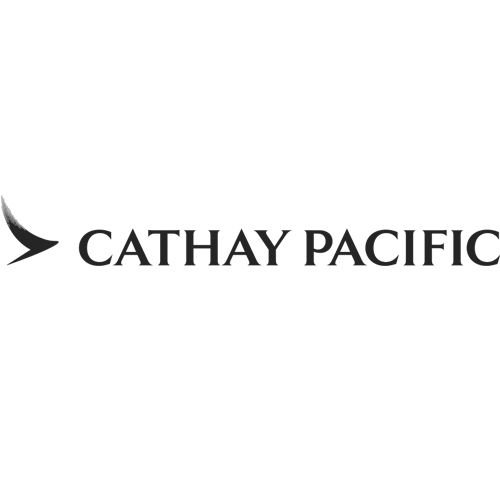How to establish authority through personal branding in Singapore
- PaperCutCollective

- Mar 3, 2025
- 6 min read
Updated: Nov 28, 2025
Understanding Personal Branding In Singapore
What Is Personal Branding?
Personal branding is all about showing the real you to the world. It’s similar to telling your personal story and what you stand for. Over time, small habits and style choices add up to the picture others see. Here are a few points to break it down:
How you communicate and act
The style you present yourself in
Your unique experiences and attitudes
A strong personal brand sets you apart.
Working on your personal brand means taking an honest look at who you are and making sure that every detail carries your true voice.
Why Is It Important In Singapore?
In Singapore, standing out from the crowd is a must. Whether you are looking for a new job or trying to climb the career ladder, your personal brand can make a serious difference. It helps you appear memorable in a busy job market. A few reasons why it matters:
It makes you more visible to employers and peers
It builds trust and reliability
It opens up opportunities by clearly showing your skills
For instance, many find that job market advice is a handy tool in polishing their image to meet industry expectations.
Key Elements Of Personal Branding
Getting your personal brand right involves a mix of details that need to fit together well. Here are some of the basic elements:
Clear message: Know what you want to say about who you are.
Consistent look and tone: Keep your style the same across all platforms.
Authentic story: Be genuine about your experiences and aspirations.
A quick look at the key elements:
Element | What It Means |
|---|---|
Clarity | Presenting your skills in plain words |
Consistency | Keeping a steady tone and style |
Authenticity | Showing who you really are without pretense |
When all these parts work together, personal branding isn’t just a buzzword it becomes a true reflection of one’s journey and approach in everyday life.
Building Your Online Presence
The online world is where many people build their image today. In Singapore, it helps to start with a strong website and then use social media to spread the word. Everyone has a role to play in this unique mix.
Creating A Professional Website
A professional website is a basic tool that shows off who someone is. It doesn't need to be fancy; it just needs to be clear and honest. One way to get it right is to focus on organization, good design, and easy navigation. For instance, having an 'About Me' page and a portfolio can make a big difference. A simple, clear design helps build trust with visitors. Don’t forget to include a brand website link to see how the elements come together in practice.
To keep things focused, consider these steps:
Choose a platform that fits your needs
Pick layouts that work well on mobile and desktop
Keep the content up to date
Leveraging Social Media Platforms
Social media agency singapore is a handy tool to reach out to new people. Each platform has its quirks. It might take a few trials on Facebook, Instagram, or LinkedIn to find the right blend. These sites let individuals share updates, interact with followers, and tell their stories in a friendly way.
Below is a simple table to compare some standard metrics on different platforms:
Platform | Average Engagement | Content Type |
|---|---|---|
High | Mixed media posts | |
Moderate | Visuals, Stories | |
Moderate | Professional posts |
Keeping track of these numbers can help decide where to put the most effort.
Engaging With Your Audience
Building online presence doesn't stop at posting content. Interactions are key. Once a visitor lands on a profile or a website, the next step is to keep them interested by replying to comments, answering questions, or sending newsletters.
Some pointers to keep in mind are:
Be regular with updates
Ask for opinions to start a conversation
Use simple language and be approachable
Engaging with the audience creates a genuine connection that goes beyond the daily scroll. It's all about sharing thoughts in a way that people feel heard and understood.
All these actions contribute to a steady build-up of a personal brand, ensuring each online activity supports a clear and honest identity.
Networking And Community Engagement
Networking is about getting out there, meeting people, and building relationships that can eventually help build your personal branding. This part of your personal brand journey involves real, face-to-face interaction as well as connections in digital spaces. It’s about being active, approachable, and genuine.
Attending Industry Events
Industry events are a great way to get to know others who are in the same field. They allow for a more personal type of connection that emails just can’t match. Attendees have a chance to share ideas, learn new things, and even work together later. Here’s a quick overview of what you can do at events:
Chat with speakers and panelists
Ask questions during sessions
Share experiences with fellow attendees
Sometimes these events can be overwhelming, but remember to pace yourself and choose sessions that really catch your interest.
It’s often in these relaxed, informal meet-ups that real opportunities for cooperation and exchange appear. Being persistent and open to conversation may lead to unexpected professional growth.
Joining Professional Groups
Being part of a group gives you a circle of support and an easy way to keep up with industry news. There are many types of groups out there, from local meet-ups to online forums. These groups can offer advice, share job leads, and sometimes even collaborate on projects. Some good practices:
Attend regular meetings
Engage in discussions on the group’s forum
Volunteer for group events
Due to regular participation, members often find that within these groups, connections form naturally that benefit everyone involved.
Collaborating With Influencers
Working with influencers isn't just about boosting your profile; it's a chance to learn from those who have a solid grip on what works in the field. Influencers can share insights about trends, strategies, and the do's and don'ts of everyday business. Collaborative efforts might include:
Co-hosting a workshop or webinar
Sharing content ideas
Participating in interviews or roundtables
A simple table can help you decide which influencer might be a good fit for a project:
Influencer Type | Key Benefit | Possible Project |
|---|---|---|
Local Business Leader | Deep network | Panel discussion |
Industry Blogger | Content creation | Collaborative article |
Social Media Personality | Wide reach | Live event |
Taking small steps towards these collaborations can make a big difference in how you’re seen by your peers.
By being active and genuine in these areas, you not only meet interesting people but also build a unique profile that stands out in the crowded field of personal branding.
Continuous Learning And Adaptation
Staying Updated With Trends
Staying in the loop isn’t just about skimming headlines – it’s a way to keep your brand fresh and in tune with the local scene. It could be as simple as catching up with the latest news or joining a casual discussion group. Here are a few straightforward tips:
Check out local news and industry blogs frequently.
Join community webinars or meetups to hear what’s trending.
Subscribe to newsletters that talk about emerging trends.
This approach not only keeps your ideas current but also feeds into building credibility. Keeping up with changes means you’re never left behind.
Investing In Personal Development
Putting time (and possibly money) into personal growth is all about adding value to your own story. Whether it’s signing up for classes, attending small local workshops, or even taking online courses, self-improvement steps up your brand. Some common paths include:
Certification programs that sharpen your existing skills.
Short courses that open up new perspectives.
Networking events that let you learn while you connect.
Below is a quick table outlining a few popular training options:
Training Type | Estimated Cost | Duration |
|---|---|---|
Online Course | $50 - $150 | 4 - 6 weeks |
Workshop | $200 - $300 | 1 - 2 days |
Seminar | $30 - $100 | Few hours |
This method of learning not only adds to your skill set but also supports your personal credibility in the local market.
Seeking Feedback And Improvement
Getting honest feedback is like having a roadmap for progress. It might seem a little awkward at first, but asking for input from peers or mentors goes a long way. Here are a few simple steps to follow:
Set a regular schedule to ask for opinions – maybe quarterly.
Use short surveys or casual chats to gather thoughts.
Keep a log of feedback and note the improvements you make.
Regular input from others often reveals areas you might miss on your own and opens doors to opportunities you never expected.
Keeping an eye on trends, investing in personal growth, and being open to feedback are the building blocks of a strategy that helps you stay ahead, both in knowledge and in building a strong personal presence.
Learning is a journey that never ends. To keep up with the fast changes in our world, we must always be ready to learn new things and adjust our plans. This means being open to new ideas and willing to change when needed. If you want to discover more about how to grow and adapt, visit our ecommerce website for helpful tips and resources!



.png)
.png)
.png)

























.jpg)